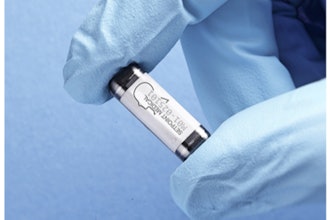
Women today face a healthcare system that lacks affordable, accessible, and effective solutions for both ends of the reproductive spectrum. For infertility treatment, the options remain limited to intrauterine insemination (IUI) with low success rates and effective but invasive and expensive in vitro fertilization (IVF). For when women do not wish to have children, the single permanent birth control option requires invasive surgery that carries significant risks for a basic healthcare need.
With an upcoming change of administration, it is important that our country not lose sight of the importance of funding women’s health initiatives. Offering women next generation advancements is critical and long overdue.
Setting the Scene
There is a global fertility crisis. According to the Organization for Economic Cooperation and Development (OECD), over the past 60 years, fertility rates dropped from 3.3 children per woman in 1960 to 1.5 children per woman in 2022, on average across all OECD countries. This is due to a variety of reasons including male factor infertility, fertility-affecting conditions like obesity, and the overall shift in our workforce where women are having children later. Contrary to the focus on female issues, male factor infertility is involved in approximately 40–50% of all infertility cases and represents a dramatic increase in prevalence over the past 40 years with sperm counts worldwide having declined by over 50%.
The current fertility rates are well below the “replacement level” of 2.1 children per woman needed to keep population constant in the absence of migration and an estimated two thirds of the world population is now living in a country or area with sub-replacement fertility, alongside the increasing number of States confronted by lower fertility numbers, according to the United Nations Population Fund (UNFPA). Women and couples around the world are going to require more effective options to start their families and avoid compounding issues related to population decline in multiple countries.
On the opposite end of the reproductive health spectrum, women are struggling to find safe, effective, and accessible options when they do not want children or are done adding to their family. There has been more than 100 years of stagnant innovation for permanent birth control for women, with the only option being invasive surgery that involve significant risks, as well as failed innovations in recent times like the coil implant. It is estimated that over 13 million women no longer intend to have children and more than 800,000 women choose surgical tubal ligation as a form of permanent birth control every year, showcasing the desire for more accessible options.
The bottom line is women and families are struggling to have children when desired and struggling with an antiquated option for permanent birth control when they are done having children.
A Positive Trend for Women’s Health Must Continue
A large focus of our national psyche is currently on women’s health and specifically reproductive health. Women’s healthcare is in the spotlight and is often controversial. Funding to aid the development of improved treatment modalities is essential to reverse the endless years of underfunding in this space.
Femasys’ mission to advance much needed technologies in women’s health, has been our driving force as we work tirelessly to ensure women have improved options for their reproductive care. We are advancing solutions that are safe, accessible, effective, and affordable for both ends of the reproductive care journey, whether a woman seeks to have a child or to prevent having one.
We have recently brought to market our product FemaSeed®, a next generation artificial insemination solution. FemaSeed is a highly cost-effective, convenient first-line therapeutic approach to enhance natural fertilization. Our team also has a lead product candidate called FemBloc® in late-stage clinical development, which is a non-surgical permanent birth control option that requires no anesthesia, no permanent implant, no surgery, and no hormones.
As an innovator in women’s healthcare, we continue to develop technologically advanced medical solutions to improve the lives of women around the world. We remain excited about the vast opportunities in women’s health to make a difference and hope the importance of the work Femasys and other innovators in the space are doing will drive funding opportunities to ensure broad accessibility.






















